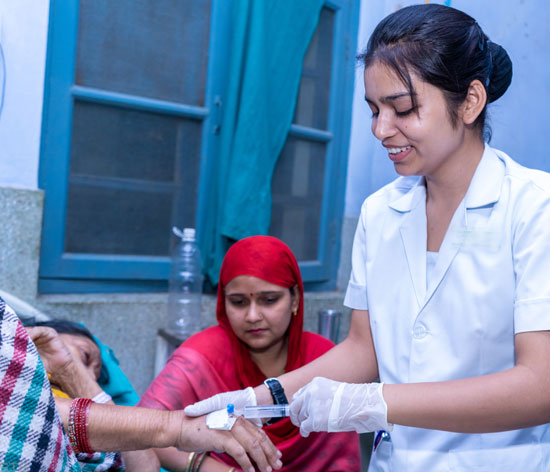
When 13-year-old Abhay was detected with Stage III Hodgkin's lymphoma in 2010, his family in Lucknow, Uttar Pradesh was devastated. With swelling in his right cervical region and fever, he underwent chemotherapy at a local hospital, and managed to lead a normal life for over 7.5 years after that.
However, when similar symptoms returned in July 2018, any further treatment was looking unaffordable for the family. They were referred to the Tata Memorial Hospital (TMH) in Mumbai, where Abhay was diagnosed with Stage-4 relapse disease, and advised salvage chemotherapy. After treatment and partial remission, he was put on oral drug treatment, and also underwent Cardiovascular Magnetic Resonance (CMR) assessment in February 2020.
This is where the treatment began to cause further strain on Abhay’s family – the income from a grocery shop his father ran was barely enough to sustain the family of six. When doctors advised an autologous stem cell transplant, the family could not manage the required money and Abhay had to continue with oral treatment.
A couple of years later, his disease had progressed significantly. Abhay was advised immune therapy to control its further decline. After being away from home for over a year now with expenses mounting, the chances of a full recovery were looking slim for Abhay.
Moreover, treatment outcomes were uncertain for his condition – with an estimated survival rate of 60% or less. Practicing yoga during his treatment period, a strong-willed and determined Abhay had chosen to not give up hope. He was advised to apply for financial assistance to support the transplant through varied funding resources.
With fresh funding support from the Tata Trusts (Individual Grants Programme), Abhay went into partial remission with the help of immuno-therapy, and was advised an allogeneic stem cell transplant. In September 2022, he had a bone marrow transplant and is now being treated with supportive care for any potential post-transplant complications. As of May 2023, the Trusts provided funds to the tune of Rs 11.8 lakh for Abhay’s cancer treatment, including post-transplant recovery and care.
Families of cancer patients and those suffering from other serious and life-threatening conditions can feel vulnerable and lost without any support. Already struggling to make ends meet, they are unable to afford the high – and often prohibitive – costs of treatment, including expensive surgery and procedures, and medicines.
Any major medical emergency drains such families of their financial, mental, and physical strength, leaving them helpless and despondent. Borrowing money at high interest rates to fund the treatment cost further pushes them into debt and misery.
The Individual Grants Programme (IGP) was launched by Tata Trusts to address this need. Based on their socio-economic conditions and careful scrutiny, the Trusts disburse grants under this programme to help families in accessing timely and quality healthcare that is otherwise beyond their means.
To ensure the maximum possible reach for the programme, the Trusts have been working to grow the network of linked government, municipal, private and charitable hospitals and other like-minded organisations across the country that the financially distressed patients could benefit from.
The IGP now supports treatments across 27 linked hospitals, with 2,066 individuals having benefited from its medical grants worth Rs 49.3 crore during 2022-23. It is yet another way by which the Trusts bring happiness to India’s numerous families who run the risk of losing their loved ones for want of funds for treatment.
